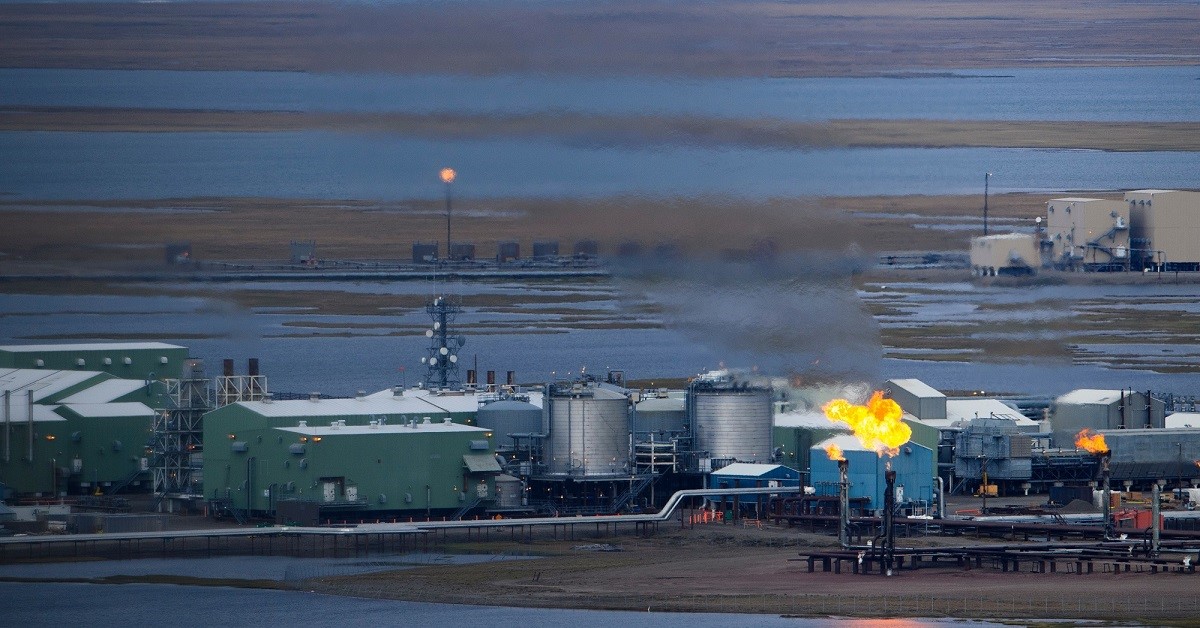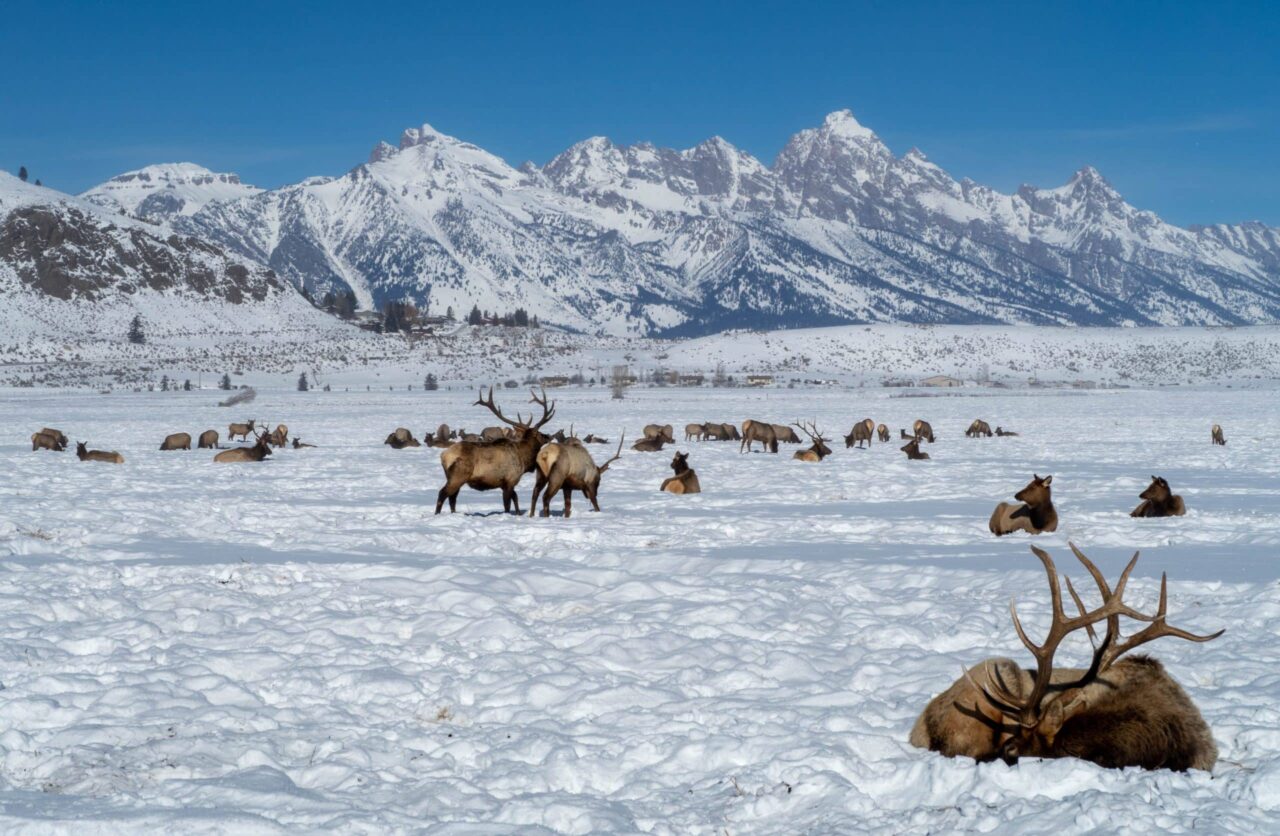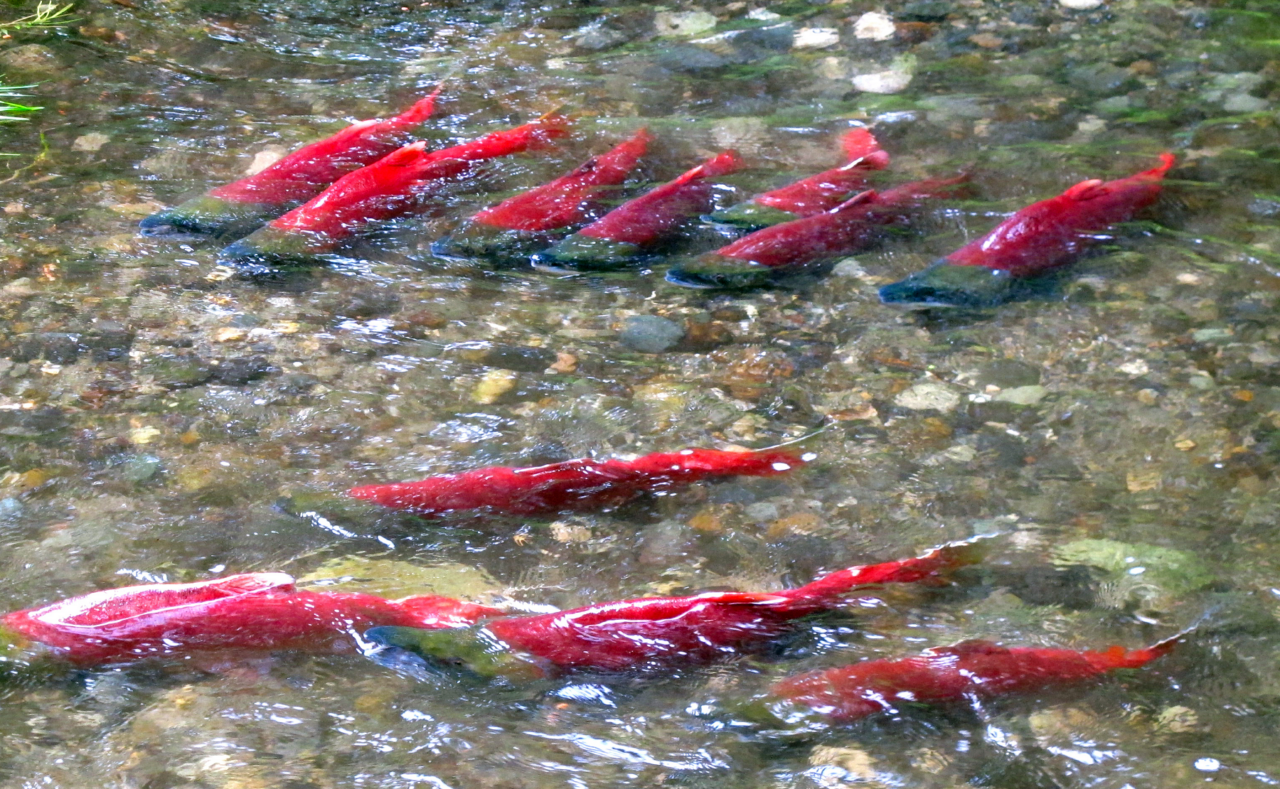Will a pandemic keep Trump from trying to sell off the Arctic Refuge?
April 7, 2020

Last week, President Trump met with leading oil company executives including three of the largest players on Alaska’s North Slope in ExxonMobil, Chevron and Hilcorp.
[Above: Oil infrastructure at Prudhoe Bay, at the head of the Trans Alaska Pipeline. The pipeline is nearly 96% owned by Hilcorp, ConocoPhillips and ExxonMobil. (Florian Schulz, www.florianschulz.org)]
By Adam Kolton, Executive Director, Alaska Wilderness League
Last week, President Trump met with leading oil company executives including three of the largest players on Alaska’s North Slope in ExxonMobil, Chevron and Hilcorp.
These CEOs are now among those seeking the President’s help as COVID-19 has caused global oil prices to crater and the administration’s “energy dominance” agenda to crumble.
We’re certainly not fans of bailing out Big Oil, especially considering that during a worldwide pandemic the administration has been frantically checking off items on the industry’s wish list. It recently finalized a new rule to weaken federal fuel economy standards which could lead to an additional 142 billion gallons of gasoline being used and released in the form of 1.5 billion more tons of pollutants. It has, at the behest of the American Petroleum Institute, suspended enforcement of virtually all environmental laws. And the President has been pressing for a deal between the Russians and Saudis to curtail global production.
Meanwhile, the Department of Interior has continued to steamroll ahead with oil and gas lease sales and environmental reviews, forcing remote, frontline indigenous communities to either participate in virtual hearings or wade through hundreds of pages of digital documents as they file written ones.
A world awash in oil in the middle of a public health crisis is not the time to sell of our public lands and waters, especially national treasures like the Arctic National Wildlife Refuge. Leasing there was a terrible idea before the pandemic, threatening the culture and food security of the Gwich’in people and iconic wildlife like denning polar bears, calving caribou and nesting migratory birds. Now it’s pure lunacy. Even ardent drilling proponents should recognize that holding a Refuge lease sale now won’t generate a fraction of the $1 billion envisioned in the President’s current fiscal year budget, leaving taxpayers high and dry and dealing another setback to an already reeling Alaska economy.
Before oil prices plummeted, Taxpayers for Common Sense estimated that an Arctic Refuge lease sale could yield as little as $20 million. Following a less-than-stellar lease sale in the National Petroleum Reserve-Alaska last fall, they revised those numbers downward to $9-14 million. Imagine what that number might be now when oil giants are frantically cutting back their exploration budgets?
And even if oil companies were willing to borrow the billions needed for Arctic Refuge exploratory drilling — which, considering current demand and market prices, is highly unlikely — there’s another growing problem for industry. More than a dozen large domestic and international banks including Goldman Sachs, Wells Fargo, JP Morgan Chase and Barclays say they’re not willing to finance any such activity, seeing increased Arctic oil as a sharp wrong turn on climate change.

So why won’t President Trump hit the pause button on the Refuge leasing gambit? He made it clear in 2017 when recounting its passage after being jammed into the 2017 Tax Act. “Who cares,” Trump recalled telling a friend when asked whether Arctic drilling would be in the tax bill. But then a buddy in the oil business explained to the President what a huge deal it would be because Reagan and the Bushes had all tried and failed to get it.
“You got to be kidding. I love it now. And after that we fought like hell to get ANWR. He talked me into it.”
Will a mounting COVID-19 death toll and plummeting oil demand keep President Trump from spiking the Arctic drilling football in the leasing end zone? We can only hope.
But one thing is for sure. The American people overwhelmingly oppose drilling in this cherished landscape on a broad bipartisan basis and would view such a move as the kind of unseemly profiteering that’s badly out of step with the national imperatives of the moment.





